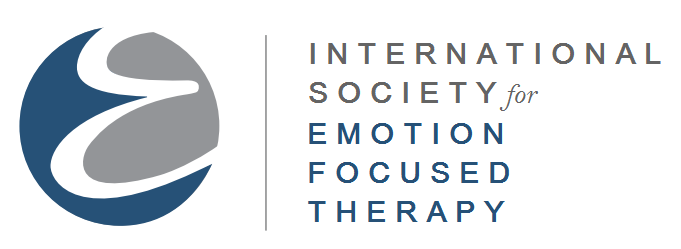Therapy is a confidential space to talk about your emotions, explore patterns and to learn new ways of coping using evidence-based methods such as Emotion-Focused Therapy.
Therapy is a confidential, structured conversation with a trained therapist to help you understand emotions, patterns, and needs—and make realistic changes. At CiEFT, our shared foundation is Emotion-Focused Therapy (EFT); some therapists use EFT as their primary approach, and all work integratively (e.g., attachment-based, trauma-informed, CBT elements) to fit you.
In your first session we clarify what brings you, agree goals, and decide how we’ll work. Sessions are usually 50 minutes, often weekly to start, and we review progress together. You stay in control: ask questions, see your notes on request, and choose whether we liaise with your GP or others. If you need urgent help, contact emergency services before arranging therapy.
Therapy can help with a wide range of difficulties. People often seek support for depression/low mood, stress and anxiety, fears and phobias, trauma (including PTSD), identity concerns or sexuality questions, anger, eating or body-image concerns, self-harm, obsessive–compulsive disorder (OCD), experiences of abuse, and other challenges.
Many people benefit from a blend of approaches, so you don’t need to choose the “perfect” therapy in advance. At your first appointment, we’ll discuss your goals and recommend a plan tailored to your needs and preferences. Our practitioners come from diverse training backgrounds, and all are trained in Emotion-Focused Therapy (EFT), each with different areas of expertise and experience. If you already have a specific approach you’d like to try, please mention it when booking so we can match you with a practitioner who offers it. You can also view our main services here.
Yes—daytime and evening appointments are available to suit your schedule. We also offer online sessions for those who live abroad or away from Nicosia. Please tell us your preference when booking your first session.
Our centres are in Nicosia and online. We partner with practitioners in Cyprus and overseas who are trained by us or practise under our supervision.
We can typically schedule your first appointment in about a week, depending on how flexible your availability is.
No referral is required to see us; you can self-refer anytime. We’re also happy to receive referrals from GPs and other medical providers. Please note we are not registered with GESY.
We work with local and international health insurance providers, so if your policy includes therapy, we can usually accept it. Please contact your insurer first to confirm your cover and any requirements. After they approve treatment, they may give you an authorisation number to share with us when you book your first session or ask to speak to us to confirm your sessions.
If you feel your practitioner isn’t the right fit for you, please tell them or let us know. Our team understands that a good match—personality and working style—matters. They will not be upset; they will advise you on next steps and help you find the support that suits you.
Yes, that’s usually possible, though we generally recommend regular (e.g., weekly) sessions at the beginning so that you begin a good alliance with your therapist
All of our practitioners are fluent in Greek and English. We also collaborate with practitioners in other countries including Poland, Spain, Italy, Israel, Iran, Turkey, Russia.
Not only. EFT is our shared foundation—and some of our therapists use it as their primary approach—but our therapists work integratively, drawing on what suits you (e.g., attachment-based, trauma-informed, mindfulness/CBT elements). In your first session they will discuss your goals and tailor the way they work. If you prefer a specific modality, let us know and we’ll match you with the right practitioner—or recommend a trusted colleague.
Yes. We offer short-term, time-limited therapy focused on specific goals. Many clients find 6–12 sessions helpful. Our therapists will agree a clear plan with you up front, review progress regularly, and you can extend, taper, or stop as needed. If you only have a few sessions (e.g., via insurance), we’ll tailor the work to make the most of them.
No special prep is required. If you’d like to come prepared, think of one to three things you want help with and note any current medications or relevant history. Aim to arrive promptly; if you’re meeting online, test the link and camera, choose a private space, and use headphones if you can. If you’re not sure where to start, that’s absolutely fine—we’ll guide you.
Yes. What you share is confidential. We only break confidentiality if: you give us consent to share; there’s a serious risk of harm to you or someone else; there’s a safeguarding concern about a child or vulnerable adult; or we’re legally required to disclose (e.g., a court order). We may discuss our work in clinical supervision to ensure quality, but identifying details are removed. If we believe liaising with your GP or another doctor (e.g. a psychiatrist) would help, we’ll ask for your permission first. If you have any questions about privacy or notes, just ask us.
We keep brief, anonymised notes after each session to track your progress. You can request a copy at any time, and we’ll provide it within 10 working days of your request.
Yes. All our practitioners receive regular clinical supervision (individual and/or group) with experienced, EFT-informed supervisors. Supervision focuses on quality, ethics, and client safety; when cases are discussed, identifying details are removed to protect your confidentiality. Frequency varies by practitioner and caseload, and increases as needed.
Our therapists are psychologists with diverse training and clinical experience — see bios on our Our Team page. All our therapists hold a Bachelor’s degree in Psychology, followed by a master’s and/or a doctorate in their area of specialisation. All practitioners receive additional training in Emotion-Focused Therapy (EFT), the shared approach at CiEFT.We follow recognised EFT standards (ISEFT) with supervised practice and competency evaluation as part of the training pathway. We believe that our profession involves lifelong learning; all of our practitioners (with no exception!) engage in ongoing supervision and ongoing continuing professional development trainings to keep up-to-date with ethical standards and evidence based practices. We also, at times, select doctoral students to undertake their specialisation with us under our supervision.




